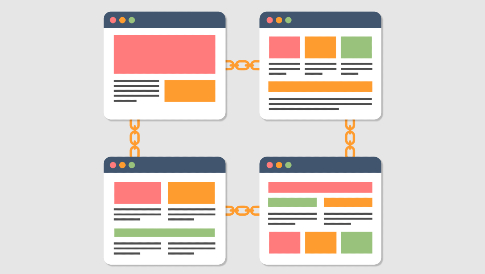Route Efficiency: 7 Key Factors in Small Business Customer Satisfaction
Client happiness is the foundation of success in the dynamic world of small business. To succeed in today’s cutthroat industry, meeting and exceeding customer expectations is not just a goal but also a necessity. Route efficiency, or route optimization, is crucial to customer satisfaction. For small businesses, effectively organizing routes for product delivery or service visits can be a game-changer. It guarantees fast and smooth customer interactions and boosts the business’s bottom line by cutting expenses and better utilizing resources. This guest post will examine the key factors that could improve route efficiency and promote customer satisfaction in small business. Each element is essential in building stronger customer relationships, from utilizing technology and data-driven insights to fostering personalized experiences.
Additionally, you can check out the Upper’s blog for more details on different route optimization software that can revolutionize your business operations and take customer satisfaction to new heights.
What Is Customer Satisfaction?
Customer satisfaction is the lifeblood of any successful small business. It measures customers’ happiness and satisfaction with a company’s goods, services, or experiences. In today’s hypercompetitive industry, meeting and exceeding customer expectations is essential for sustained growth and brand loyalty. Customer satisfaction becomes the key factor in the success of small businesses rather than just a metric. Further, customers who are happy with their purchases are more inclined to stick with the business, promote it, and spread the word about it favorably.
Customer satisfaction becomes even more critical when discussing route efficiency or route optimization. To guarantee delighted customers, timely delivery, personalized services, and efficient operations are essential. Businesses can improve customer experiences, decrease delivery delays, and cut operational costs by utilizing effective route planning. This will ultimately raise customer satisfaction and support ongoing business growth.
Importance of Small Business Customer Satisfaction
Customer satisfaction is the keystone that powers successful small businesses in terms of route efficiency:
- Customers who are happy with your small business are more likely to stick around, which lowers customer churn and boosts long-term profitability.
- Brand advocates are satisfied consumers who spread the word about your company to friends and family.
- Repeat purchases from satisfied customers help to maintain a steady flow of income.
- A company with high customer satisfaction attracts new clients and commercial opportunities.
- A competitive edge that sets your small business apart from rivals is provided by superior client satisfaction. Customers that are satisfied frequently make larger purchases, increasing sales and money generation.
- Positive customer feedback can offer insightful information for service delivery and continuous improvement.
Now that we know the importance of customer satisfaction let us look at the factors affecting customer satisfaction for small businesses.
7 Factors Affecting Small Business Customer Satisfaction
Customer satisfaction is the key to success for any small business. Seven key factors significantly impact customer satisfaction for small businesses regarding route efficiency. Let’s examine each of these factors in detail:
1. Efficient Route Planning
Streamlining route planning is essential for small businesses that depend on product deliveries or service visits. Routes that are optimized assure prompt arrivals, decrease fuel and labor costs, and reduce delivery delays. Companies can use route optimization software to make data-driven decisions that result in successful and economical operations. Customers value promptness and effective route planning ensures that customers receive their purchases or services quickly, improving their overall experience.
2. Real-time Tracking
Customers may see the status of their orders or service appointments thanks to real-time tracking. Customers are more likely to trust a company when they can check the progress and location of their delivery or services. Hence, customer expectations can be managed, and disappointment can be avoided via proactive communication and real-time tracking updates.
3. Personalized Experiences
Customizing services to fit specific client preferences and demands can greatly impact customer satisfaction. Various methods, including feedback forms, purchase histories, and online interactions, can be used by small businesses to collect consumer information and preferences. Businesses can use this information to customize recommendations, discounts, and even delivery times, giving customers a sense of value and comprehension.
4. Efficient Customer Service
For the purpose of resolving any questions, grievances, or problems that clients may experience, prompt and effective customer service is crucial. Small businesses should make an effort to offer several ways to improve customer service, including phone, email, and live chat, and to reply to their questions quickly. Effective customer care fixes issues and makes a good first impression, increasing client satisfaction.
5. Eco-friendly Practices
Environmentally friendly business strategies can greatly impact consumer satisfaction in today’s environmentally sensitive world. The use of energy-efficient delivery vehicles, eco-friendly packaging, and support for carbon offset programs are just a few examples of the green efforts that small businesses can employ. Customers value companies focusing on sustainability and ethical business practices, enhancing the brand’s reputation.
6. Consistent Service Quality
When it comes to retaining customers, consistency is essential. Small businesses should make an effort to consistently provide excellent customer service whether customers connect with them online, over the phone, or in person. Consistency encourages clients to choose your company repeatedly by fostering a sense of reliability and confidence.
7. Feedback and Continuous Improvement
A company values its customers’ opinions when actively seeking improvement suggestions and encouraging client input. Making informed judgments for better service delivery, small businesses might find areas for improvement by analyzing client feedback. Implementing changes in response to client input demonstrates a customer-centric strategy and promotes a continuous improvement culture.
Thus, small businesses can create a route to excellence by utilizing the power of these factors, one satisfied customer at a time.
Conclusion
To sum up, customer satisfaction and route effectiveness are inextricably linked, driving success and growth for small businesses. In a cutthroat environment where every customer interaction counts, mastering route efficiency is more important than ever. Small companies can prosper by prioritizing customer satisfaction through route optimization, ensuring their path to success is effective, profitable, and client-centric.
Small businesses can develop stronger customer relationships by embracing technology-driven route planning, real-time tracking, tailored experiences, and eco-friendly practices. Customers happy with their experiences become devoted brand ambassadors, promoting positive word-of-mouth and repeat business while enhancing the company’s reputation and competitive edge. So let’s work together to create a future where happy consumers drive your small business forward.




Leave a Reply